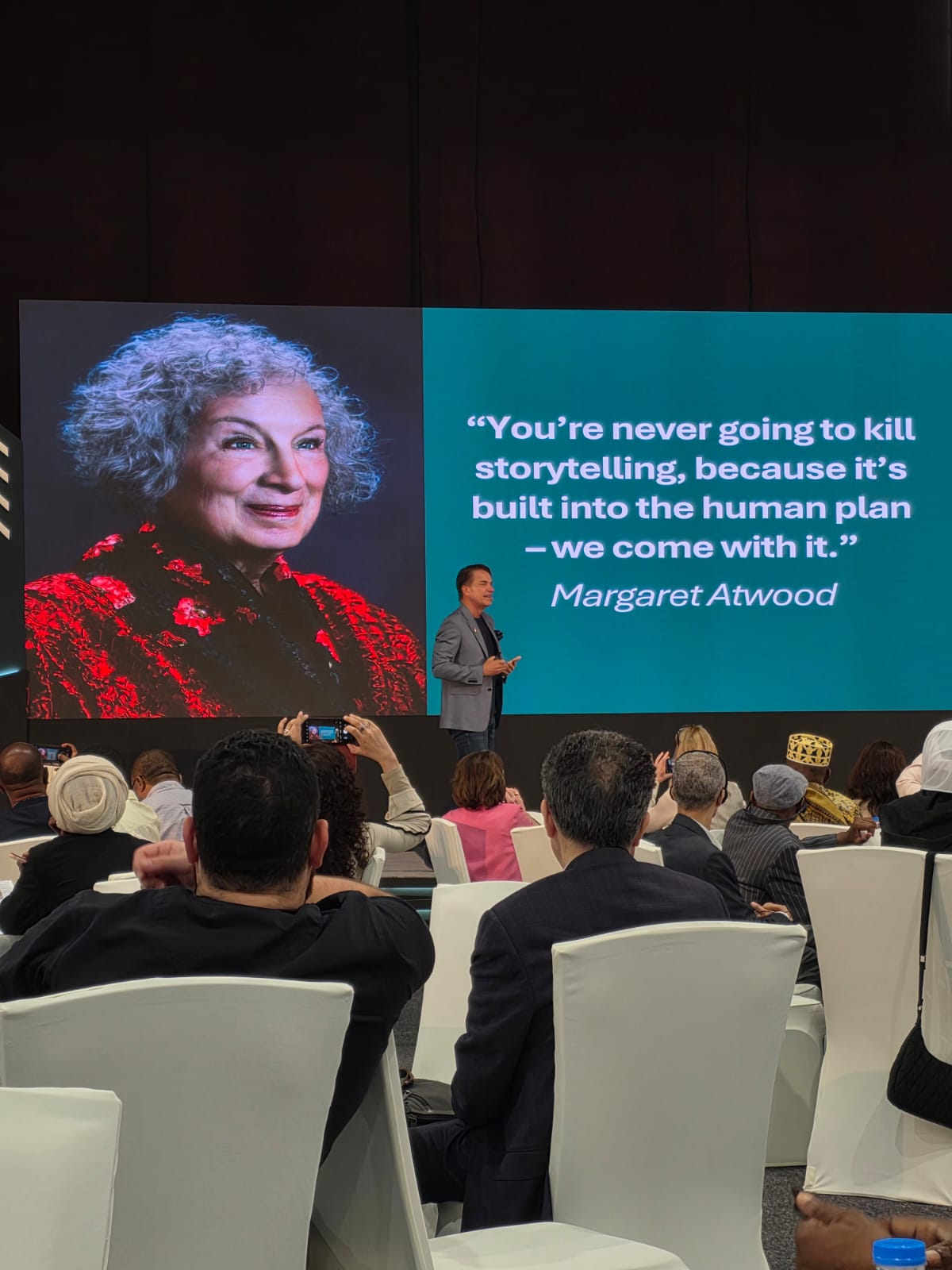
Every year, global book fairs and literary festivals draw publishers, writers, illustrators and rights professionals into rooms where the future of storytelling is negotiated. Yet behind the bustle of meetings and receptions lie deeper questions about access, visibility and the place of African stories in a tightly controlled global market. In this conversation, Joan Onyando speaks about her experiences in Sharjah and Frankfurt — two major stops on the publishing calendar — and explores what these spaces reveal about relationships, rights, comics, children’s books,and the often-overlooked power of publishers in bringing African voices to the world.
You recently attended the Frankfurt Book Fair and the Sharjah Publishers Conference. What would you say is the biggest difference between the two?
They were unique, each in its own way. Sharjah felt warm as people had time for each other, and there was a sense of equality. You didn’t feel hierarchical gaps in the industry; people met each other at the same level. That was really beautiful.
Frankfurt, on the other hand, had a completely different energy. People rarely had time for personal interaction. It heavily leans on your personal objectives. Most people end up meeting only those they have scheduled appointments with. The good thing, though, is the number of networking receptions. If you make time for them, you can meet new people and connect.
Manga has dominated the comics, and the Philippines is rising steadily as well. Where do you see the future of the comic industry?
Manga is huge! But I realised manga is just one section of comics. Comics are diversified, and the global market is shifting.
During a conversation with Ethiopian author Donica Merhazion, she intimated something important: big publishers control what enters the market. So, many great books don’t get through because gatekeeping is real. Smaller publishers, despite their size, often make the biggest impact because they take risks and care more about getting the work out.
What does this mean for Africans trying to enter global publishing spaces, considering many big publishers control what gets read?
From my experience, especially in Lomé, I was shocked by the quality of books produced by very small publishers: beautiful books that rarely reach the market because the publishers are small.
I’m experimenting with this approach with Jen Minkman, who co-authored Call of the Raven with Kenyan writer Mercy Ng’eno. Her publisher is small but strong in the Dutch market. Selling 2,000–3,000 copies in a small town is a huge success. That’s an entry point one cannot ignore. Partnering with small publishers could help African books reach new markets.
In your view, what makes a great children’s book?
First impressions matter. Children fall in love with a book visually before reading it; therefore, you cannot compromise packaging. But beyond appearance, the story must be well-edited, well-presented, and truly resonate with the audience. Representation must be done properly.
What fascinated me is that many of these excellent books are produced by teams of only two or three people. The quality is truly astonishing. One of my favourite examples is Ravaka, a publisher we are working with. We’re acquiring world rights for two of their French titles. One of the books is like an “African Shrek” — simple, high-quality, and imaginative. If African publishers could push such books out globally, it would be game-changing.
Would you advise Africans in publishing to attend literary festivals instead of book fairs?
You can attend, both but it depends on your objective.
For Frankfurt, my initial objective was to attend the Children’s Festival where Axel Scheffler was headlining. But our objectives evolved, so we ended up in discussions about selling four titles in France and Germany, and meeting people who weren’t initially in our catalogue pipeline.
Rights deals take time; nothing is instant.
What were your top three takeaways from the Sharjah Publishers Conference?
Sharjah was impressive. Many people said it was the best in 15 years. These were my three takeaways:
- Audiobooks (Penguin Random House presentation):
Very insightful. They discussed workflows, rights, trends, and the importance of simultaneous releases across formats.
- The New York University Publishers Training
This was interactive with real-time exercises, not just presentations. It was refreshing.
- Roundtable on Growing Readership (UK Summer Reading Challenge model)
This was one of the best sessions I attended.
I also got to learn about the UK Summer Reading Challenge, which is supported by their government and the European Union. This is a partnership between libraries and schools that sees over 2 million books circulated during summer. Adults in prisons are also not left behind. Now this is the most interesting part: all the books printed for the programme cost less than €1 (Ksh150) but publishers still get full value.
I’d love to experiment with something similar here at eKitabu — perhaps an Easter Reading Challenge.
What insights did you gain on metadata management?
Metadata is everything in discoverability as it includes author details, keywords, categories, contributors, book descriptions, and tags. If the metadata is wrong, your book becomes invisible online.
I realised our own systems need updating. For example, our author list contains writers from the 1930s and 1940s who are no longer active. Accurate metadata determines how readers find your books online.
How has printing hindered the progress of publishing in Kenya?
Printing is extremely expensive here. Even when you have a manuscript ready, the printing costs can delay production significantly.
I am glad we are considering printing in India and China. It’s not about abandoning Kenya — it’s about being realistic. We can’t compromise on quality for the sake of keeping printing local. Quality has to come first.
Final thoughts?
You cannot become what you don’t know exists. I have seen great books, and we are going to acquire great books and achieve quality because people are doing it!